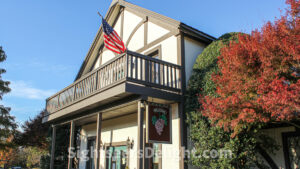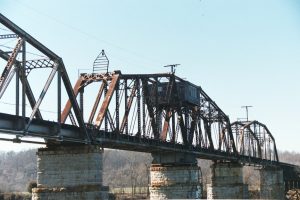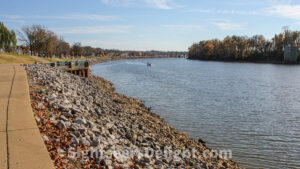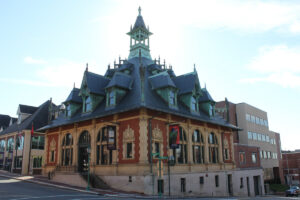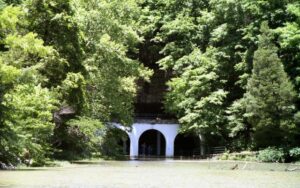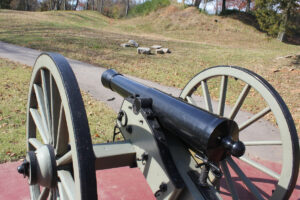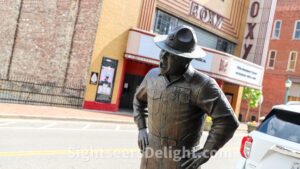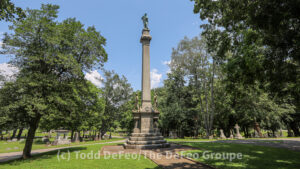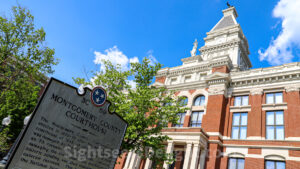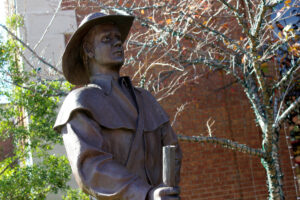Judge William O. Beach paved the way for wine production in Tennessee when he opened this winery in 1987. While Beachaven produces a number of sweeter, fruit-flavored wines, it also produces a strong assortment of drier wines. For starters, consider sampling the Syrah and Cabernet Sauvignon. For anyone unsure about the wine, the tastings are free, as is a brief tour of the grounds. The winery’s highly popular Jazz on the Lawn series in summer months features free music at the winery.
37040
The most impressive railroad relic in Clarksville, Tenn., is the swing bridge over the Cumberland River. With stone pillars dating to 1859, the 678-foot-long bridge is normally more than 50 feet above the river and can swing to allow river traffic to pass when the water level is high.
To take advantage of its best asset, the city built a mile-long walkway along the Cumberland River. The walkway provides visitors with nice views of the traffic traversing the river and offers a nice respite from the city’s usually congested streets. The river is also the backdrop for many events, including an annual music festival and also the home to the Christmas on the Cumberland celebration.
37040
In 1898, the federal government built a customs house and a post office at the corner of Second and Commerce streets to help process the increasing volumes of mail to and from the city. In 1984, the building was transformed into the Customs House Museum and Cultural Center touted as the state’s second-largest general interest museum. The museum features a number of permanent exhibits, including the postmaster’s office and Memory Lane, dedicated to telling the story of Clarksville and Montgomery County’s history.
37040
By the 1930s and 1940s, Dunbar Cave was a popular destination, not so much because of its natural splendor, but because of the musical acts that performed at the cave entrance. The 8-mile-long Dunbar Cave was formed millions of years ago and has always attracted people. During digs at the site, archeologists found Paleo-Indian artifacts buried near the cave entrance, and in 2005, Indian glyphs were discovered on the cave walls.
37043
Confederate troops in November 1861 built defenses overlooking the Cumberland and Red rivers. Following a major battle at Fort Donelson in nearby Dover, Confederate troops abandoned Clarksville; Union troops later found the abandoned fort and reworked it for their needs. In 2011, the city opened a $2 million interpretive center to tell the story of Fort Defiance. In addition to a movie in the center, visitors can see remarkable well preserved earthworks at the site and take in a newly installed Confederate money exhibit.
37042
The city of Clarksville, Tennessee, unveiled the Frank Sutton Statue on Franklin Street in May 2017. Local sculptor Scott Wise created the statue of Sutton, a Clarksville native best known for portraying Sgt. Vince Carter on the 1960s CBS show “Gomer Pyle U.S.M.C.” Sutton in the South Pacific with the U.S. Army during World War II. The statue stands along Franklin Street across from the Roxy Regional Theatre. Sutton, who died in 1974, also appeared in “Gunsmoke” and “The Twilight Zone.”
37040
The historic Montgomery County Courthouse in downtown Clarksville, Tennessee, dates to after the city’s great fire of 1878. Depending on the source, it is either the county’s fourth or sixth courthouse. It was built in 1878-79 to replace an edifice destroyed in the fire, which destroyed much of the city. The “new” courthouse was damaged several times, including during a 1900 fire and a 1999 tornado. Following the tornado, court operations moved to a temporary location on Legion Street (now Strawberry Alley) before moving into its current location. Today, the historic courthouse houses county government offices.
A statue honoring John Montgomery, the namesake of Montgomery County, was erected in 2002. While on a hunting expedition, Montgomery claimed Clarksville, Tennessee’s second oldest city. The city is named for Gen. George Rogers Clark.

